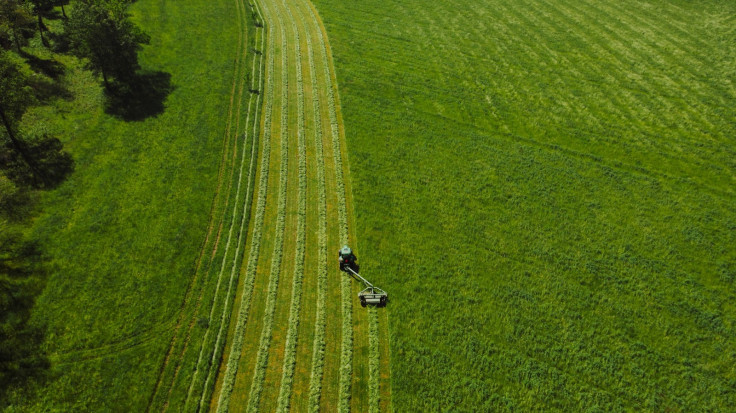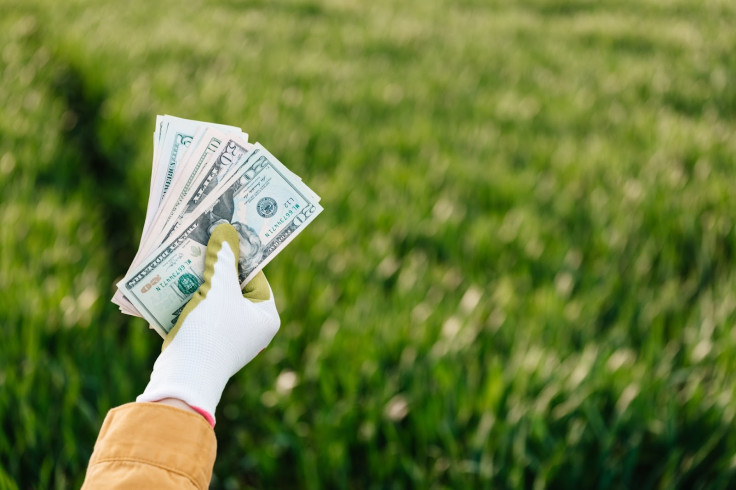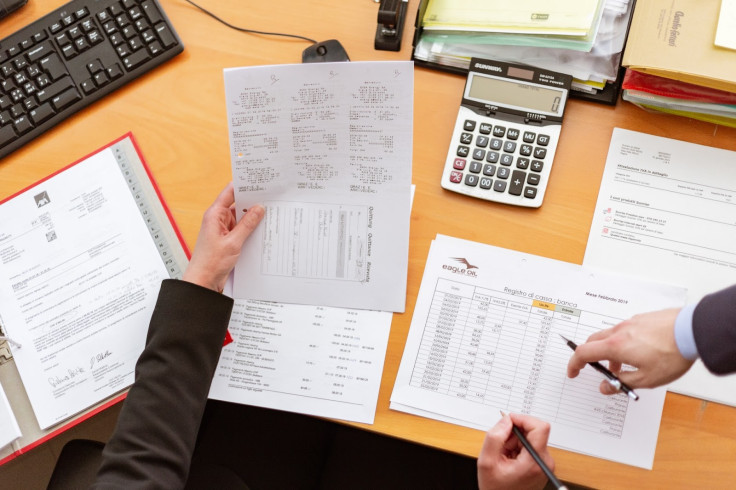U.S. Farmland Investing Made Easy

For ages, real estate investing has been one of the favorite assets for investors across the world primarily due to its consistent returns on investment. The real estate space is a vast industry where different kinds of properties and land space are utilized to serve a purpose in society be it homeownership, manufacturing, or supporting the food chain.
Why U.S. Farmland Will Continue to Grow in Demand Over Time
While most real estate sectors are stable compared to stocks and bonds, farmlands have a strong intrinsic value and major long-term growth prospects since they directly affect the rising pressure on the food supply chain. What is worrying about farmlands is that industrialization, increasingly non-farm employment opportunities, and climate change due to rising pollution have been detrimental to croplands. As per a recent survey, US farms have significantly declined from 2.20 million in 2007 to 2.02 million in 2020. If farmlands continue to decline on top of predictions that project 9.7 billion people by 2050, it won't be a great world to live in.
More shockingly, it is estimated that the world may run out of food in the next 27 years primarily due to the rising population, climate change, and an eating lifestyle that includes meat processing. Former Harvard Professor Edward Wilson once estimated that we'd need two planets equivalent to Earth to meet the current need. Furthermore, he stated that the 3.5 billion acres of arable land if not highly depleted could feed 10 billion people only if everyone agrees to become vegetarians.
The energy required to produce meat is higher than any other form of food and is 75 times higher than what is required to produce corn. Calculations factoring several parameters estimate that we might need to produce more food in the coming 40 years than we did in the last 8,000 years! Food shortages could very likely lead to mass migration and worldwide conflicts.
Since food shortage could be headed our way faster than climate change, a global effort to preserve arable land, integrate sustainable agricultural practices, and use modern equipment for high crop yield at low energy consumption are some of the only real solutions.
From an investor's perspective, the omnipresent inflation that shoots up food prices, growing consumption that outweighs current supply capacity, and decreasing arable land are likely to make farmland the most sought-after asset in the coming decades. Billionaire Bill Gates has been aggressively investing in farmland and is currently the largest private farmland owner in the U.S. with assets of more than 240,000 acres with an estimated value of over half a billion dollars.
At the same time, it is interesting to note that transitioning from meat consumption to a vegan lifestyle or meat alternatives could see a big push in an attempt to meet the food supply-demand as well as for individual wellbeing.
A Deep Dive into the Largest Online Farmland Investing Platform in the U.S.

Since 2017, FarmTogether, an online farmland investment manager, has emerged as a leading tech-powered platform that allows accredited investors to own portions of institutional-grade farmland as fractional shares sourced through a rigorous and extensive due diligence process.
FarmTogether is committed to funding sustainable farming, which they rightly believe is one of the ways to build a healthy planet and secure the food requirements of future generations. FarmTogether is a Leading Harvest certified platform, which states that 100 percent of its asset under management (AUM) is managed through sustainable practices such as efficient irrigation, cover cropping, and transition of organic fertilizers.
To date, they have funded over 40 deals across 14 crop types including permanent crops (tree nuts, citrus) and row crops (corn and soybean) located nationwide with an emphasis on farmland with consistent water availability, fertile soil, and vetted operators who manage day-to-day operations. FarmTogether currently has $175 million worth of AUM with a target net cash yield of 2 to 9 percent and target net returns of 6 to 13 percent.
How are Deals Structured on FarmTogether?
FarmTogether offers accredited investors the opportunity to invest in crowdfunded premium farmlands for a minimum investment of $15,000 as well as sole ownership bespoke offerings for a minimum of $3,000,000. The Securities and Exchange Commission primarily defines an accredited investor as one who has had an annual income of over $200,000 for the last two years ($300,000 per household) with good chances of maintaining that income level in the current year or one who has a net worth of more than $1 million, excluding the value of their primary residence.
Although accredited investors generally have more purchasing power than the average investor; unlike single-family rentals or multi-family units, entry into farmland investing has traditionally required a very high initial capital. This has kept even several high net worth individuals out of this premium asset class. With crowdfunded deals, FarmTogether has lowered the minimum investment cost to a feasible $15,000, making it possible for a wider range of investors to put their money into farmlands poised to churn out income from crop yield and grow individual net worth through land value appreciation.
Unlike Real Estate Investment Trusts (REITs) that do not give your physical ownership of real estate properties, crowdfunded offerings allow you to own units of a special purpose entity that directly owns the property, technically making you the owner of that property.
All FarmTogether listings are managed by their wholly-owned subsidiary FarmTogether Management LLC. In addition, terms of profit payouts, minimum sale price after hold period, and financial reporting are accessible to the investor, making it a transparent ecosystem designed to help investors make educated investment decisions.
Real estate crowdfunding allows many individual investors to pool their money and collectively invest in larger real estate projects. Think of real estate crowdfunding as private equity investing since you are technically contributing to the equity stack in the project, thus making you a stakeholder of physical real estate.
Although high-capital entry was a major barrier to farmland investing, geographical constraints and lack of awareness related to farmland sourcing and benefits also led many investors towards other real estate sectors even if they stood to earn more from farmlands.
FarmTogether eliminates geographical barriers by listing properties from diverse marketplaces across the nation. Moreover, each farmland listed on their online platform is managed by a vetted and assigned FarmTogether operator who takes care of property management, collects revenue generated from crop yields, and ensures smooth operations. These two crucial developments in the farmland sector facilitate a hands-free investing experience where investors are free from the responsibilities of a landlord and the due diligence process involved in farmland acquisition.
When you create an account on their intuitive online platform, you can review the risk/return profile, fee, ownership structure, sustainability practices, legal documents, hold period, and more details for a holistic overview to help you understand if it aligns with your investment preferences.
Their secure platform also offers an easy account setup, uploading of accreditation status documents, and a seamless payment gateway with the option for investors to track portfolio performance in real-time.
Income Opportunities and Fees

Farmland investors on FarmTogether benefit from a passive income stream generated from farming operations and rental payments via lease agreements for row crops or direct management contracts for permanent crops paid out on a quarterly, semi-annual, or annual basis.
Although most seasoned real estate investors should already know this, beginner farmland investors need to understand that although you receive additional money through rental payments, the ultimate goal is growth in net worth through land value appreciation.
Because of this, most real estate investments have a hold period based on land appreciation estimates that typically last from five years but are not limited to a decade. Now that we understand that real estate investments are stable and income-generating but comparatively illiquid, FarmTogether sometimes offers an annual window for investors looking for penalty-free early exits. However, they still recommend investing for the pre-decided hold period for maximum benefit upon the sale of the property at the end of the hold period.
Crowdfunded deals on FarmTogether typically have hold periods ranging from 5 to 12 years, whereas sole ownership bespoke offerings meant for individual investors who seek sole ownership are free to decide the hold period at their sole discretion.
While fees vary for each offering, FarmTogether strives to keep them below the market average with the help of cutting-edge technology.
Farmland Sourcing and Due Diligence Process

FarmTogether claims that only two percent of all deals on their radar make it to their online platform. An experienced team with decades of cross-industry experience in farmland investing, investment management, agriculture, ag-tech firms, finance, and technology in combination with an extensive checklist make it possible for them to source, invest, and present the highest quality farmland opportunities in the US.
Unlike industrial properties that can thrive on undeveloped land with decent accessibility, farmlands need to be checked against water availability, soil conditions, climate, and market access, among many other parameters.
When the FarmTogether team shortlists potentially profitable farmland, they begin their review with a macro view that analyzes water availability, climate change, regulatory landscapes, and long-term estimation of agricultural yields. This process is followed by an in-depth study of the end markets such as consumer demand and preferences, regional regulations, supply and demand conditions, as well as long-term trends based on the crops grown on that particular farm.
The next step involves a rigorous property analysis where FarmTogether runs over 150 datasets from the public, private and proprietary sources using their proprietary technology that includes filters such as tiling, drainage, option to add secondary water sources, among other parameters to narrow down on the most profitable farmland within their geographical outreach and crop selection.
To make sure that no stone is left unturned, Farm Together subjects all probable farmland listings to a 120-point checklist relevant to each farm that checks for soil, water, title, regional legislation, farming ecosystem, and farmworker wages too. They work alongside experienced due diligence providers and growers to get a complete understanding of the farmland in view. Their goals are to source high-quality farmland with a risk-adjusted balance of short-term income and long-term land value appreciation potential.





















